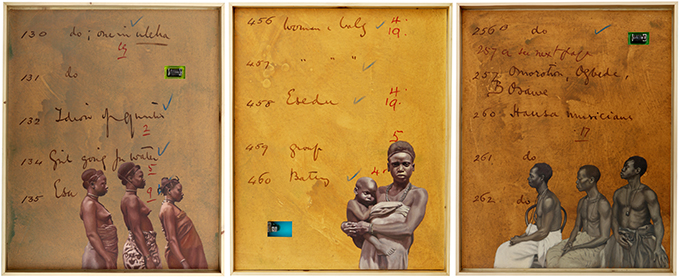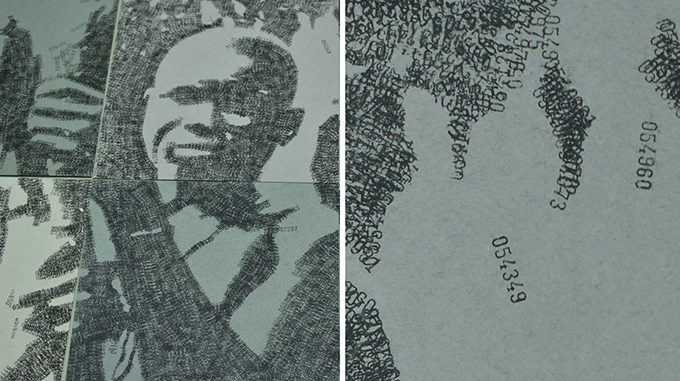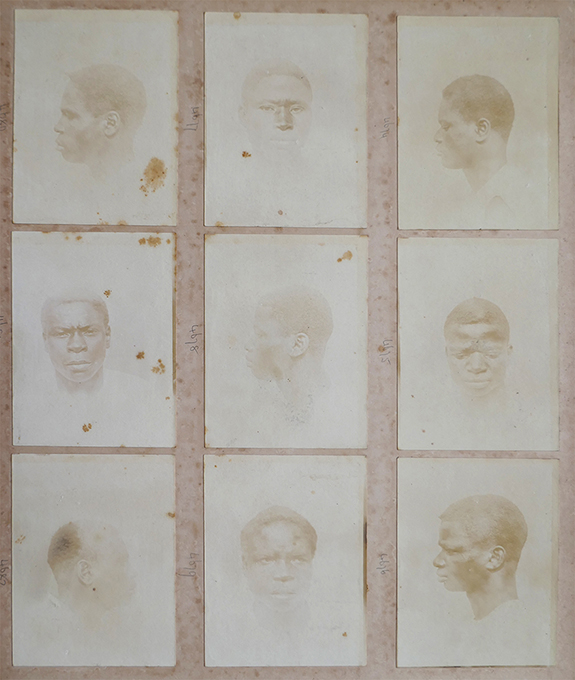![Kelani Abass [Re:]Entanglements Contemporary Art & Colonial Archives Exhibition, National Museum Lagos](https://re-entanglements.net/wp-content/uploads/2019/08/Kelani_Abass_exhibition_National_Museum_Lagos_re-entanglements.net_.jpg)
We are delighted to announce the next [Re:]Entanglements project exhibition, which will be taking place at the National Museum, Lagos, between 21 September and 27 October 2019.
The exhibition is the outcome of a collaboration between the [Re:]Entanglements project, the Lagos-based artist Kelani Abass, and the National Museum, Lagos. The exhibition features a series of new contemporary artworks by Kelani Abass, which respond to archival holdings in the National Museum of Northcote Thomas photograph albums. This will be the first exhibition at the National Museum that focuses on the Museum’s archival collections, and that brings together contemporary art and colonial archives.
The photograph albums were originally deposited at the Colonial Secretariat in Lagos at the time of Northcote Thomas’s anthropological surveys. They are the only substantial part of the Thomas collections that remains in Nigeria. At the beginning of the [Re:]Entanglements project, we believed these to be duplicates of photograph albums that are held in the UK’s National Archives (originally kept in the Colonial Office Library in London) and at the University of Cambridge Museum of Archaeology and Anthropology. When we tracked the albums down, however, we discovered that the albums from Thomas’s 1909-10 tour in Edo-speaking areas of Nigeria were actually very different from the albums in the UK, not least in the layout of the photographs on the pages and inclusion of additional descriptions on each page.

The exhibition will include displays of the original albums, and juxtaposes Kelani Abass’s new works, produced on various media, with large scale digital prints of pages from the albums. Abass has created two series of works for the exhibition under the title Colonial Indexicality. First, is a series of 12 works produced using acrylic, oil on canvas and letterpress type, which explores the archival textures of the albums from Thomas’s Edo tour. The paintings reproduce the yellowed paper panels on the album pages, including texts in various coloured inks and pencils, some in Thomas’s own hand. On each canvas Abass has painted one of the photographs from the corresponding album page, capturing the aging of the photographic images in the subtle tones of his paint. Inset in each panel, letterpress type blocks with the corresponding number of the photographic image is set.

A second series of works forms a large-scale intersecting collage reproducing five of Thomas’s photographs. Remarkably, these are ‘painted’ using a hand automatic number stamping machine. Like dots in halftone photographic printing, from a distance the photographic image can be seen, but as one approaches, the integrity of the image breaks down to its component ‘dots’, which in this case are each unique numbers. This speaks powerfully to seemingly obsessive use of numbers used by Thomas to index not only the photographs he made during his anthropological surveys, but also his sound recordings, artefact collections, botanical specimens and indeed every page of fieldnotes. This gives rise to the title of Abass’s work for the project, Colonial Indexicality.

The ‘dissolution’ of the photographic archive so powerfully evoked in Abass’s works, is reflected too in the large scale digital prints of Thomas’s original albums. As such the exhibition is also a reflection on the precarious state of the archive itself – especially in West African institutions. The condition of the albums is extremely poor as a result of the environmental conditions in which they have been stored and pest damage. They, along with many other collections in West African museums and archives, are in urgent need of conservation care if they are to survive. This can be seen, for example, in the way in which the photographs in some of the albums have faded – in some cases, they have become almost invisible. As well as drawing attention to the precarity of the archive, this speaks eloquently to fading of memory – something that we have been very aware of during fieldwork in Nigeria and Sierra Leone.

It has been especially rewarding working with Abass on this collaboration, since the themes of the [Re:]Entanglements project link closely with themes that he has been exploring in other work over a number of years (see, for instance, this interview with Kelani Abass). We were introduced to the work Abass produced for his solo exhibitions If I Could Save Time and Àsìkò: Evoking Personal Narratives and Collective History at the Centre for Contemporary Art (CCA), Lagos, and we are especially grateful to Iheanyi Onwuegbucha, curator at CCA, for working with us on the curation of the exhibition at the National Museum. We are also very grateful to Mrs Omotayo Adeboye, Curator of the National Museum, and Mr Taye Pedro, Librarian and Archivist at the National Museum, for providing access to the collections and hosting the exhibition. Without their support the exhibition would not be possible.
[Re:]Entanglements: Contemporary Art & Colonial Archives is on at the National Museum, Onikan, Lagos between 21 September and 27 October 2019. See our next blog about the exhibition, including video documentation of its installation and opening event.